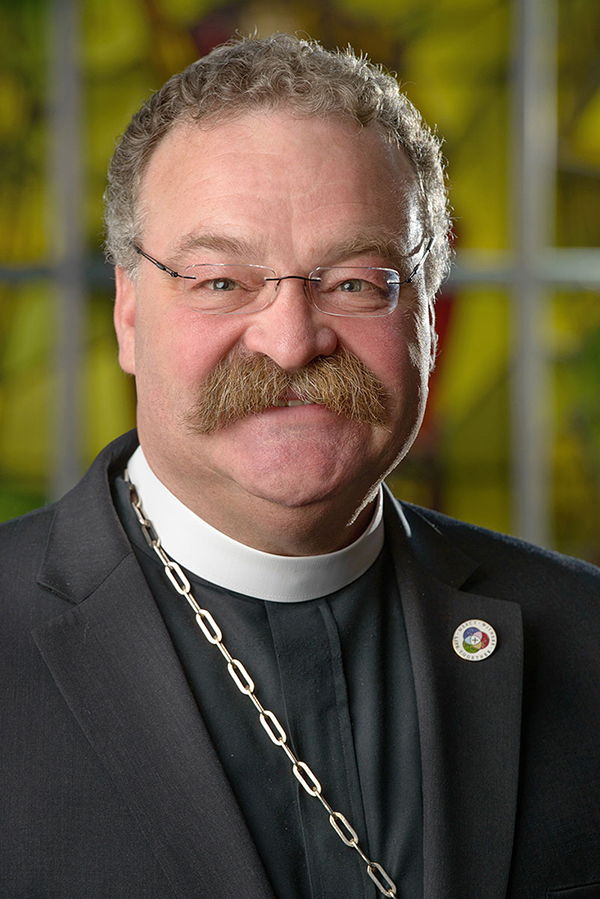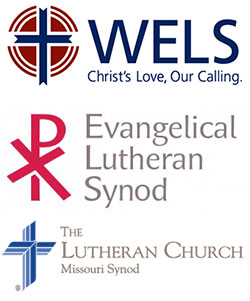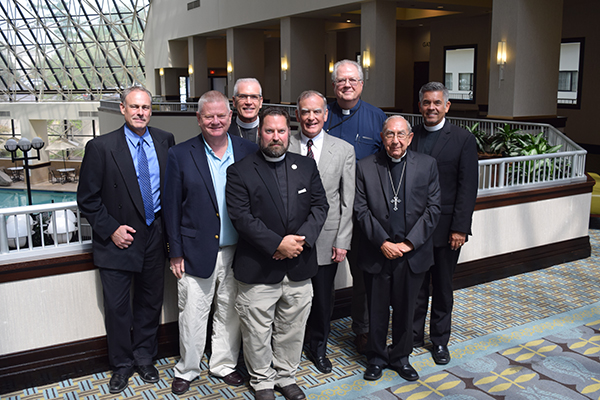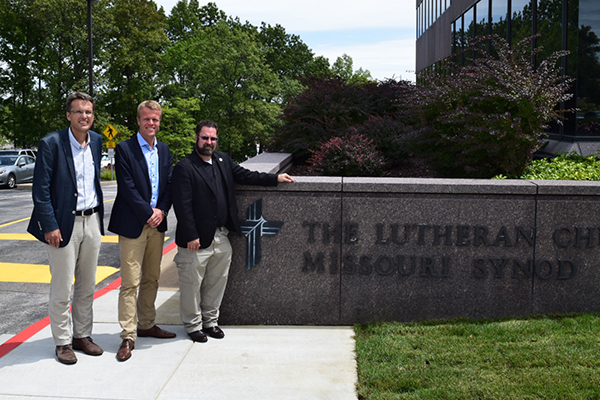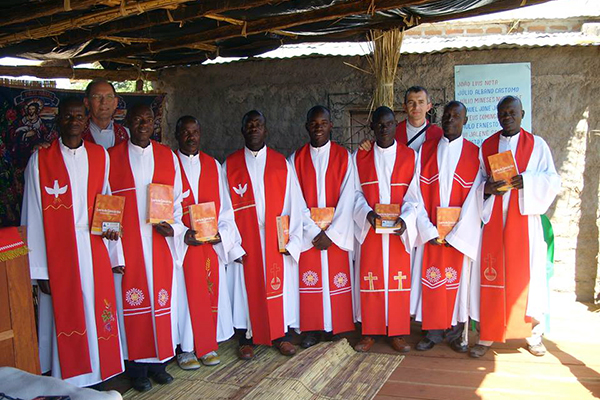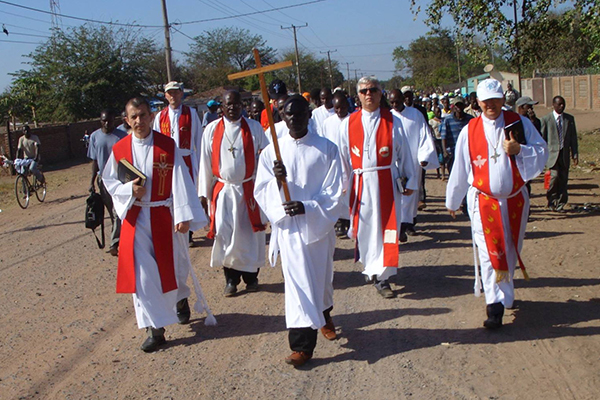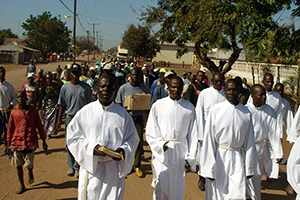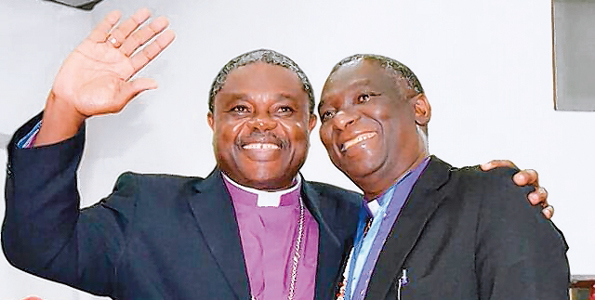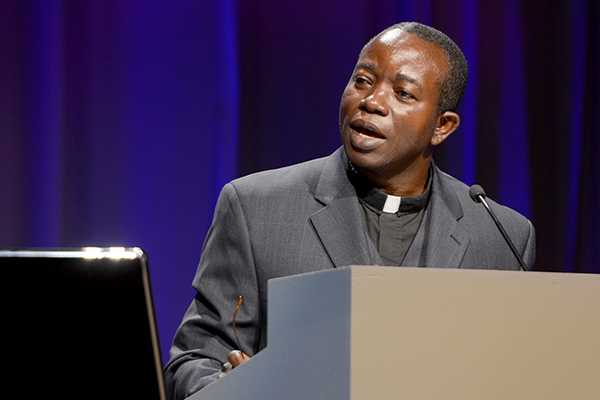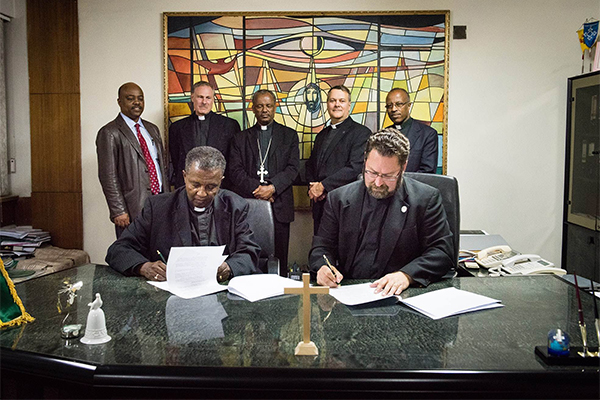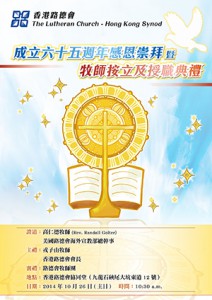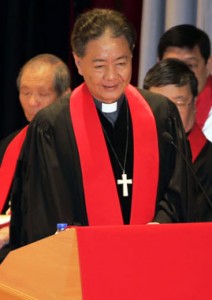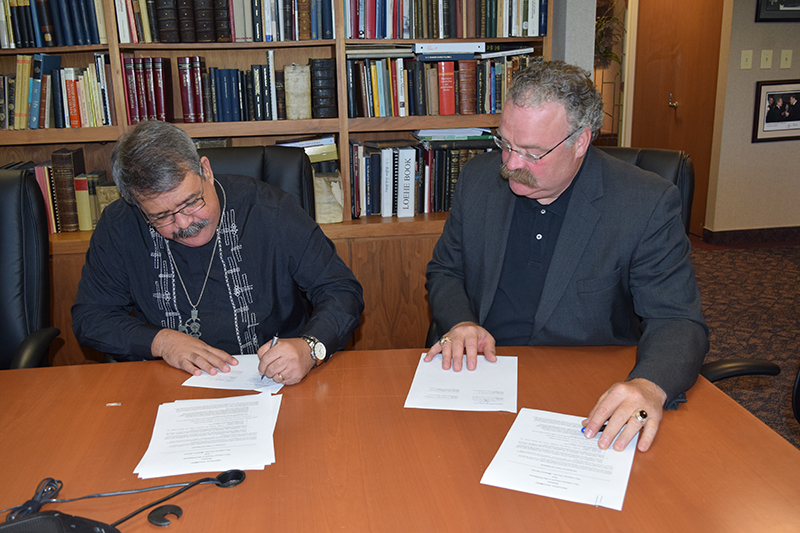
LCP President Antonio Reyes and LCMS President Matthew Harrison sign the protocol agreement.
USA – On June 8, the Lutheran Church of the Philippines (LCP) and The Lutheran Church—Missouri Synod (LCMS) signed a protocol agreement during a meeting in St. Louis, Missouri.
The agreement outlines how the two church bodies will work together going forward in such areas as higher education (theological education), cooperation in mission work, communications, and other programs. It further highlights that the basis for fellowship between the two churches is their joint witness to the authority of Holy Scripture and subscription to the Book of Concord.
The protocol agreement was signed by LCP President Antonio Reyes and LCMS President Matthew Harrison, as well as LCP Vice President Felipe Ehican and LCMS Director of Church Relations Al Collver.
The Lutheran Church of the Philippines has approximately 25,000 members. The LCMS has approximately two million members. Both churches are members of the International Lutheran Council, a global association of confessional Lutheran churches.
———————

